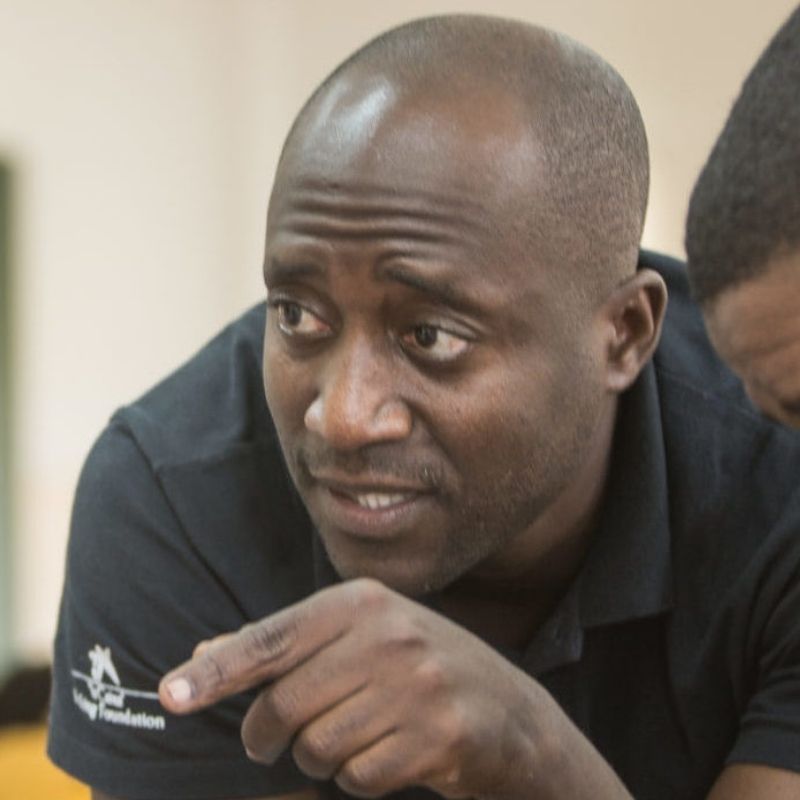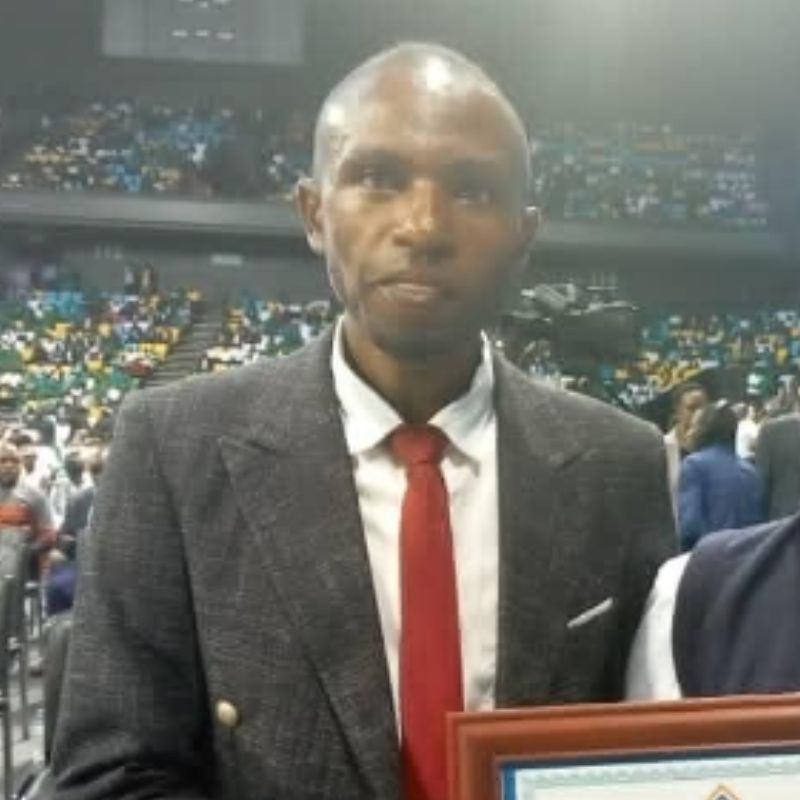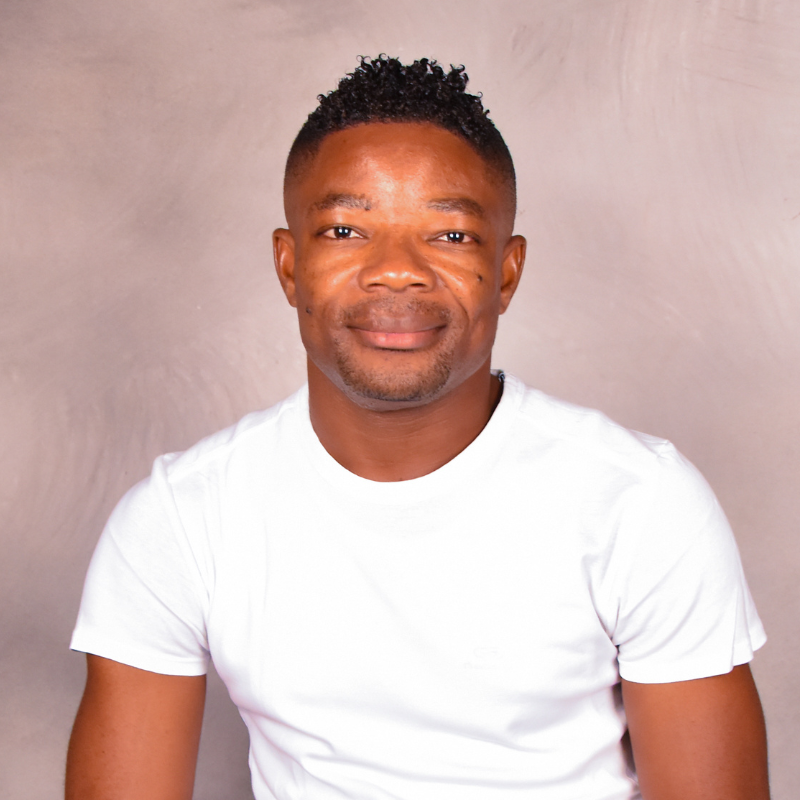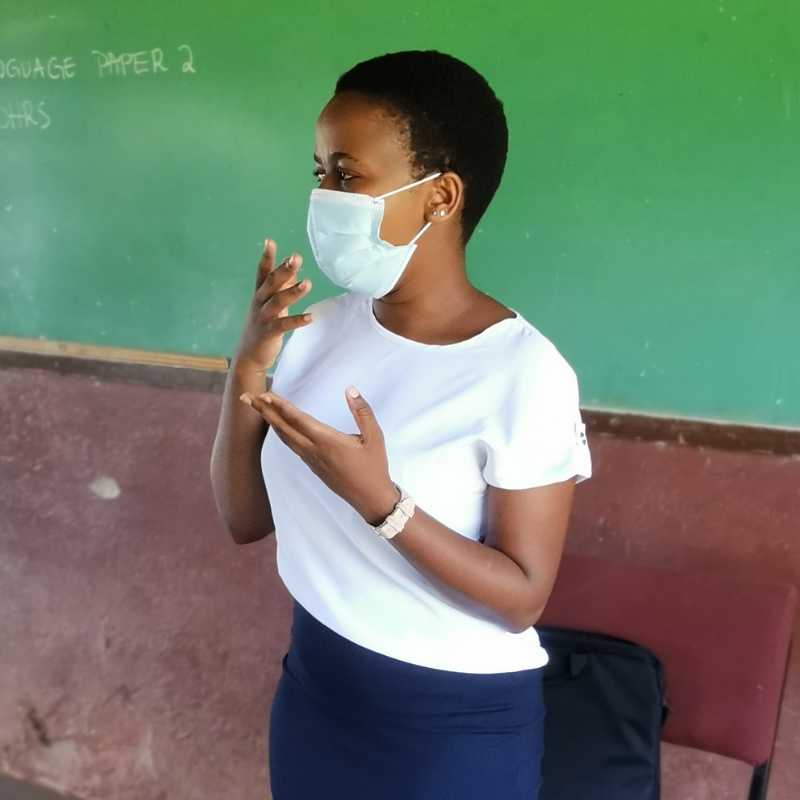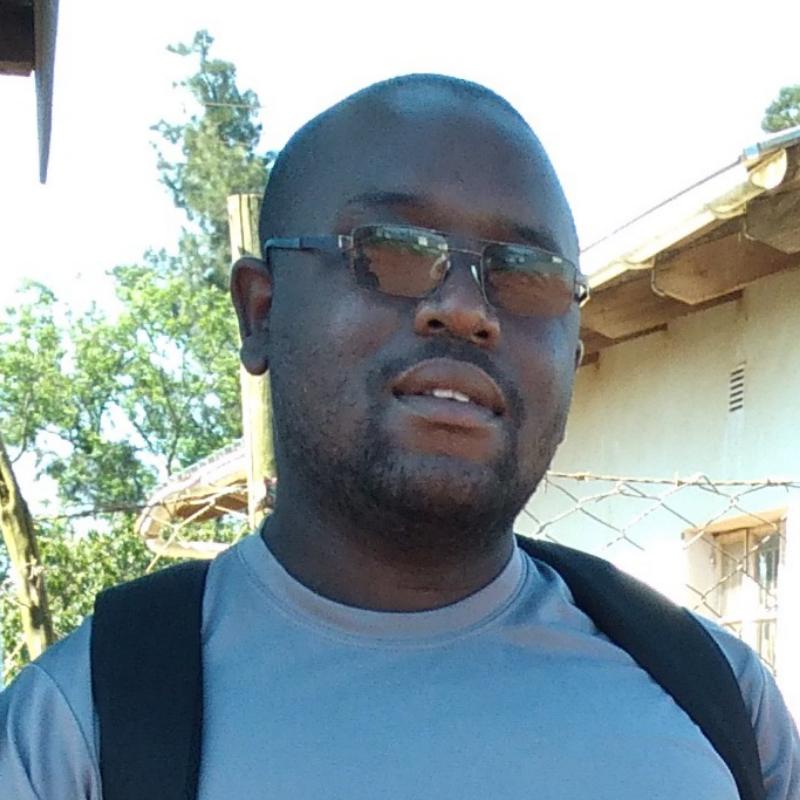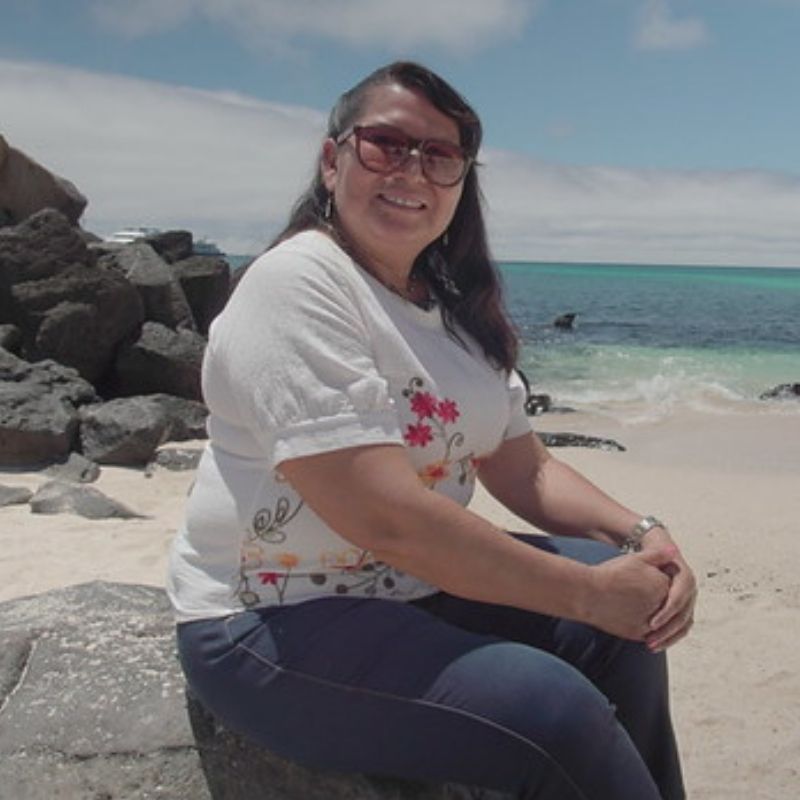Regional Coordinator in Angola.
Share
Through his professional work at ProFuturo, Manuel aims to reduce the impact of poverty and the difficult living conditions of children through a single path: to improve their education by incorporating digital tools into the classroom.
Manuel Domingos Pedro Duas Horas is ProFuturo’s regional coordinator in Angola and manages the work carried out by local coordinators in four provinces of the country: Luanda, Caxito, Viana and Cabinda. Before the COVID-19 outbreak, his work was limited to the Luanda area. However, his experience led to him extending his work to the other three areas of the country. In this account, we’ll tell you about Manuel’s origins as a coordinator in Luanda.
Life in Angola
Manuel studied mathematics at university and married his long-time girlfriend, Maria de Fátima Lourenço Monteiro Duas Horas, a friend from the same village and with whom he now lives in Viana, a neighbouring area ninety minutes’ drive from Luanda which is experiencing an awakening thanks to its industrialisation and its proximity to the capital. Manuel and Maria de Fátima have four children: two boys and two girls. Queila Ana, the youngest member of the household, is a lively girl and she sometimes plays with her father while he prepares for the school visits.
Portuguese is the official language of Angola, but several local languages, such as Kimbundu, are also spoken there. Luanda is a city with a population of just over seven million people, many of them displaced from rural areas in Angola as a result of the Civil War, which ended in 2002 after 27 years of conflict.
Before becoming ProFuturo’s local coach coordinator, Manuel was in charge of visiting schools in the area. His job involves him crossing the suburbs of Luanda each day, passing through the labyrinth of fruit and fish stalls of the colourful street markets, and dodging the potholes, the mud, the rubbish and the violence that is latent in a place of extreme poverty, and where women and girls are also often marginalised because of their gender.
Life in and around Luanda is really difficult for the most disadvantaged people. In addition, social and economic inequalities are blatantly obvious. Eighty percent of the population survives on less than two dollars a day and only nine percent of the population has running water.
Three quarters of Luanda’s inhabitants live in unofficial settlements, in shacks or in small self-built houses that time and time again get demolished without warning to build new housing for the country’s upper classes. In the suburbs, life continues despite these harsh conditions, lack of supplies and violence.
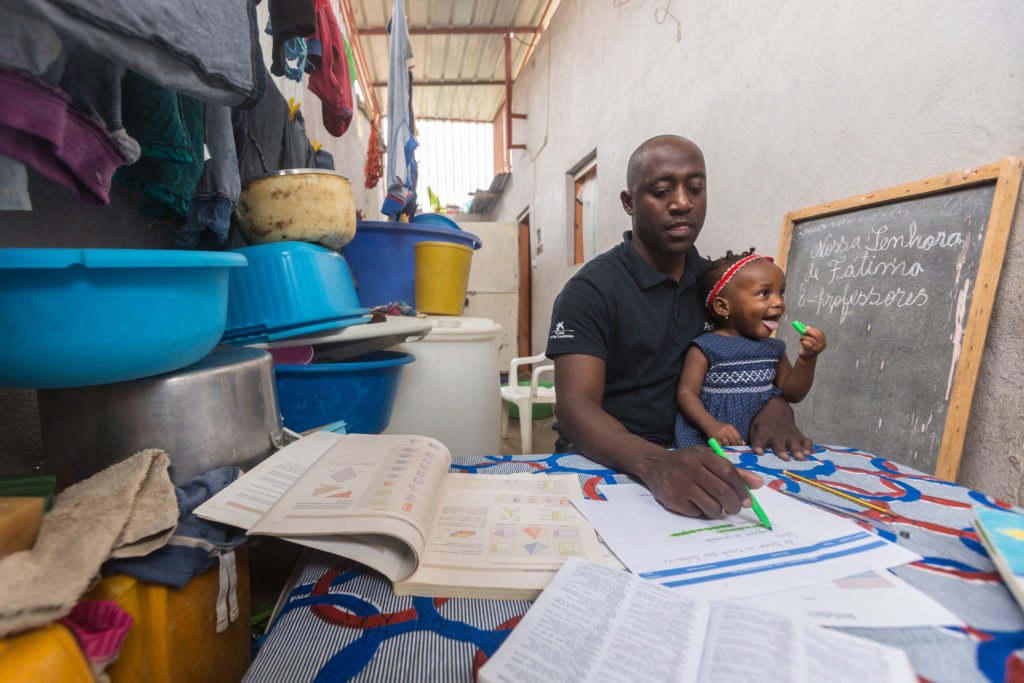
Bringing Digital Education Closer
Manuel meets periodically with the teachers and headteachers of the five schools which he is responsible for to provide the classroom training that they receive regularly throughout the programme; to resolve any doubts they may have regarding the use of the digital pedagogical platform designed by ProFuturo; to assist them in the design of new curricular material that the teachers can make available to the other teachers using the platform and to confirm that everything works according to the quality standards set by ProFuturo.
This training is aimed at identifying each teacher’s best skills and carrying out constant monitoring at the schools. The close relationship that the ProFuturo area coordinators maintain with the schools and with the teachers and headteachers allows them to do field work that provides highly valuable information in ProFuturo’s process of constant improvement.
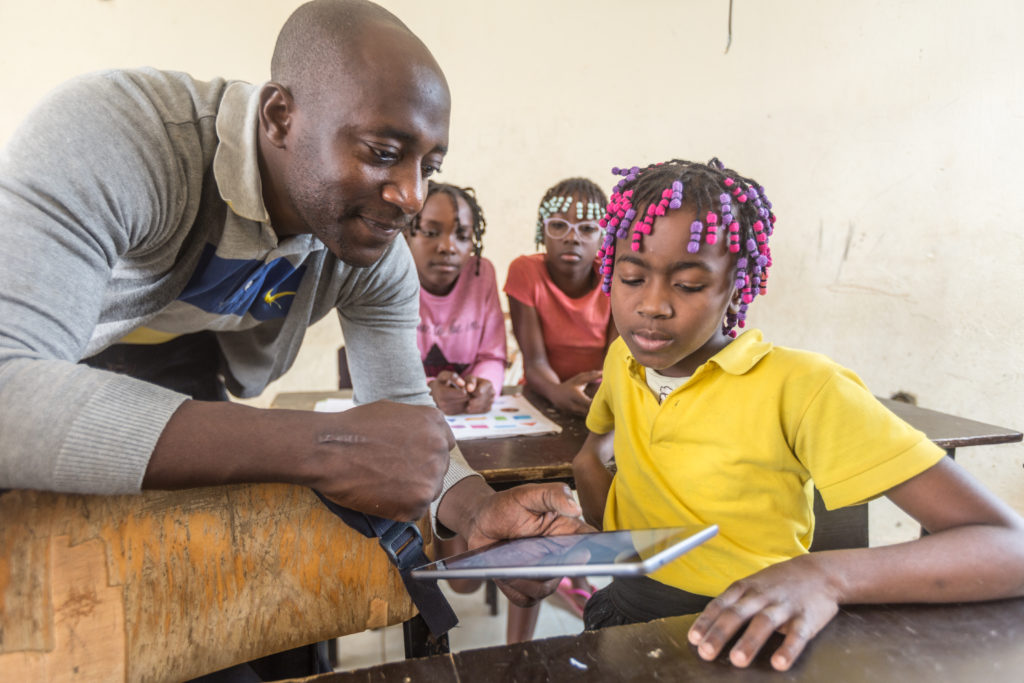
The Tablet Classroom
Families often express particular curiosity about the ProFuturo classes, so Manuel and the teachers spend time explaining how technology resources are used in the classroom to support and enhance children’s learning. In a social environment in which technology is far from being implemented to its full capacity, one of Manuel’s goals is for families to adopt a positive attitude towards technology.
As for the children, they love using the tablet classroom, as is the case with Emilia, a student in our educational programme. Manuel sometimes visits the classroom and explains how to use the tablets to make the most out of them, and he also sees first-hand how effective the programme is. Emilia, an inquisitive girl with a thirst for learning, has no qualms about asking Manuel a thousand and one questions every time he comes to her school. As for Manuel, he has no doubts that education is key to reducing the educational and digital gap in his country.




